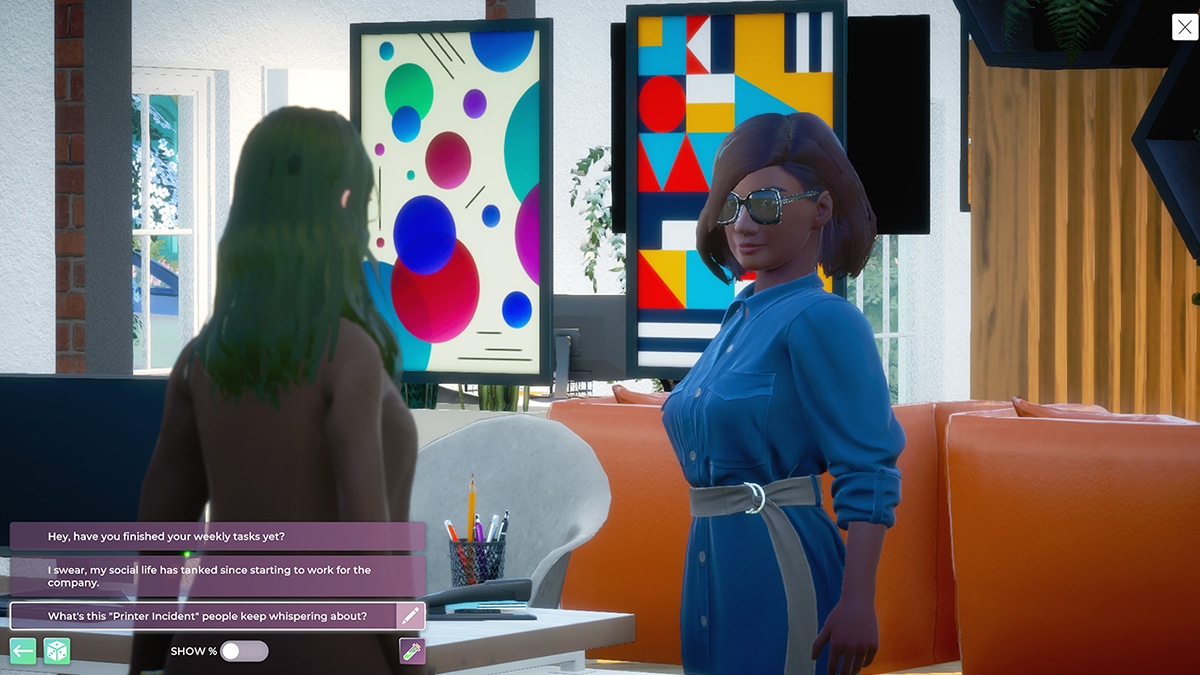Trending
Opinion: How will Project 2025 impact game developers?
The Heritage Foundation's manifesto for the possible next administration could do great harm to many, including large portions of the game development community.
.png?width=700&auto=webp&quality=80&disable=upscale)
What tools to players need to build the perfect digital human? Rod Humble, who used to oversee The Sims franchise, offers an answer.

Rod Humble knows a thing or two about life sims. The industry veteran previously helped steer development on The Sims 2 and The Sims 3 as EVP and president of The Sims Label at EA (having also worked as an executive producer on the series), and now he wants to help blur the lines between the digital world and our own with Life by You.
Developed by Paradox Tectonic, which is led by Humble, Life by You is unashamedly ambitious. The studio intends to build one of the most moddable and open life-simulation games, placing players in total control of the humans they create, the towns they inhabit, the clothes they wear, the furniture they buy, the cars they drive, the conversations they have, and–well, you get the idea.
Life by You exists in an open world without loading screens, letting players life out one carefully curated life or influence the existence of an entire community. It's an ambitious pitch, and so we sat down for a chat with Humble to learn how he intends to realize his vision of a simulated world that can serve the whims and needs of a kaleidoscopic player base.
As anybody whose played a life-sim will understand, there are a multitude of reasons people are attracted to the genre. Sure, some folks might simply want to direct the lives of their virtual counterparts, but others might spend hours constructing their dream house or tinkering with every single variable in the character creator.

Humble wants to make sure Life by You meets the expectations of all of those player types, explaining–almost in passing–that's why the Paradox team set out create a "world class" character creator. It's a pretty bold claim, so I ask Humble what considerations went into creating a toolset that would feel world class. His response? Flexibility.
He notes that the character creator in Life by You doesn't just allow players to alter the physicality of their characters–known as "agents," in-game–but also their emotional and philosophical outlook on life. "I remember seeing the very first character creators we made, and even though it was all very basic back then, it gave us the ability to see someone's entire life history and all of their relationships. We could see they'd had a turbulent childhood, or what they'd had for breakfast yesterday. [...] Agents in the game can then spread that information, so all of those systems are also in service of the stories [players create]."
Humble calls this the "metaphysical" part of the character creator, and says the Tectonic team worked tirelessly to ensure it hit the mark. "We wanted to go the extra mile for the metaphysical parts, so you have your history–what type of childhood you're growing up," he says. "You have your demeanours, so an agent might be messy or dramatic or cultured or fickle. These have got teeth, and each of these traits have a full editor, but players can also make new traits."
Pulling that thread, Humble explains how one of Tectonic's designers made a 'tidy' trait. After creating the category, they rifled through a bunch of in-game interactions and tagged them so that, when undertaken by a 'tidy' agent, they would feel more fulfilled or increase a skill. Conversely, that means when a 'lazy' agent takes that same action, they might feel miserable. "All of a sudden, we've now got gameplay for a whole bunch of characters and players, who maybe didn't realize those actions would have some kind of impact," continues Humble, noting that modders will be able to do exactly the same thing.

Have you ever wanted to give a trashcan mystical properties? Now you can.
Although the metaphysical was a big focus for Humble and the team, they also sought to expand the physical options afforded by the creator. To that end, Humble suggests Life by You will to raise the bar by letting players "change just about every aspect" of their character.
"Height was a big one for us. There's a complexity here that players will never know – and that's good, because they shouldn't have to know – but the reason in most life simulators everybody is exactly the same height, is because you use objects, so if you've got people of different heights, you've got to account for somebody sitting on, say, a chair, who might be three times as short as another player. It's difficult so you have to get all of the inverse kinematics working correctly," he says.
"So, the fact that our character creator lets players change the length of arms, [the size] of hands, their height, and have all of that work with 3D objects [was our goal]. What's more, all of those 3D objects, you can click on any of them and change the script."
For instance, Humble notes that players might take a toilet script and apply it to a bush, so their agent can now go to the toilet in a bush (hey, who are we to judge?). Alternatively, they could go into that script–or any script–and create entirely new gameplay beats. "I might say 'this bush–this bush is an inspirational bush, so when you're near it you can gain inspiration to make landscape art.' That's what I mean by 'world class character creator.' It's the ability to not only customize your character but also tell stories."
Read more about:
FeaturesYou May Also Like